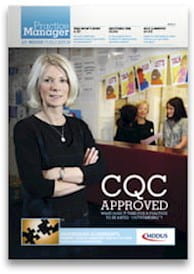PREVENTING discrimination and managing equality are ethical and legal requirements that impact organisations, both large and small. We work in a world of changing population dynamics.
We have more women in the workplace, more ethnic minorities as well as an increasingly ageing population, and it is important that no one feels that they are being treated unfavourably in having what we call in employment law terms a “protected characteristic”. Encouraging greater awareness and understanding of protected characteristics, as defined by the Equality Act (2010), can only help in reducing the likelihood of discrimination claims.
So what are protected characteristics? They take in age, disability, gender reassignment, marriage and civil partnership, pregnancy and maternity, race, religion of belief, sex and sexual orientation.
How can you ensure your practice conforms to the law in terms of equality and protected characteristics? First it is essential that any practice has an up-to-date equality and diversity policy that is integrated into the key HR functions such as recruitment, pay and training opportunities. But it’s simply not enough just to have a policy; staff must be informed and trained in the policy and its meaning. The commitment to the policy also needs to be demonstrated “top-down” by partners, salaried GPs and GDPs, and managers within the practice.
Discrimination can take various forms and in some ways may not even be intentional. To be safe, practices should ensure that they have a robust set of HR policies and procedures to support their decisionmaking and reduce the likelihood of an employment tribunal claim. Below are some areas where an equality policy can impact a practice.
ADVERTISING JOBS
Steer clear of using terminology that may potentially discriminate against certain groups of people. Examples of this might include “mature individuals only” or “young graduate” or “female preferred”. Ensure that the advert details what the main duties and responsibilities are and use these as the key criteria for shortlisting in the next stage of your recruitment process.
RECRUITMENT
Ensure that you assess the candidates against the job requirements equally. Candidates should have the same opportunity to answer the same questions. In any recruitment process there will be an element of bias, so to help reduce this you should have two people involved in the interview process when possible.
Although it may be more commonplace than in the past, take great caution in checking social media sites to see how candidates present themselves to the outside world. If a decision not to carry a candidate forward to the next stage isn’t based on their match to the skills and experience of the job, then you could be opening up your practice to a discrimination claim. Apart from a few exceptions, the Equality Act (2010) makes it illegal to ask about an employee’s health and absence records prior to offering a job so this topic should be avoided.
TRAINING
Access to training and development opportunities should not exclude a specific person or group of people, and access to training should not be influenced by a certain protected characteristic or whether staff are in full or part-time employment. Everyone should have the same opportunity to apply for training and you should be able to justify your decision as to what training is granted.
RELIGIOUS PRACTICE
It is important to be mindful and sensitive to employee’s religious practices and beliefs. An example of this might be that in planning events you ensure there are vegetarian or halal food choices, as well as non-alcoholic drink options. You may be in a position to offer a place for prayer but smaller practices may find accommodating this too difficult. There is nothing in employment legislation to state that you have to give time off or facilities for religious practice but it is important to try and be as flexible and accommodating as possible.
DISMISSAL
An employee must have two years’ service with a practice before being allowed to take an employer before a tribunal for unfair dismissal. However, it is important to note that if they believe that they have been dismissed because of a protected characteristic then they qualify for this right from the day that they join the practice. For example, if you wish to dismiss a poorly performing employee who you know is homosexual, you would have to be able to justify this on grounds of performance and be able to prove that the dismissal was not related to their sexuality.
To conclude, do ensure that you treat all people with equity and respect, and that you have a robust set of HR policies and procedures to protect your practice from claims of discrimination. If you think that your practice would benefit from an up-to-date equality and diversity policy, please contact us at employmentlaw@mddus.com and we will be happy to email you a copy.
Janice Sibbald is an employment law adviser at MDDUS
This page was correct at the time of publication. Any guidance is intended as general guidance for members only. If you are a member and need specific advice relating to your own circumstances, please contact one of our advisers.
Read more from this issue of Practice Manager

Save this article
Save this article to a list of favourite articles which members can access in their account.
Save to library
